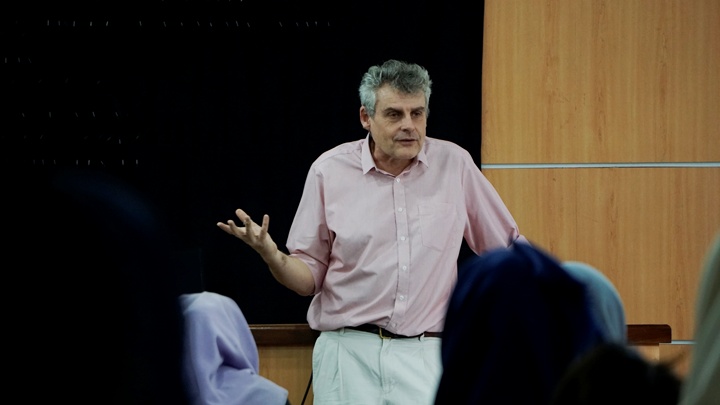
The New Order became an important material in the study of contemporary Indonesian history. Not only because of the length of time in power – namely 32 years, but the New Order gave a historical legacy, which is still being felt today. However, what became interesting for researchers was how the New Order state scheme worked. UGM historian, Farabi Fakih, in his dissertation said that the New Order was a Managerial State. A terminology that shows that the New Order worked like a corporation.
Benevolent Bandits?
At that time Prof. David Henley started the presentation with a question. Was the New Order good bandits? In his research, he uses a political perspective by borrowing the concept of a stationary bandit. In simple terms, stationary bandits are political elites (central) who use their power for the wrong purpose – namely strengthening networks and then fulfilling personal interests – by forming groups in other areas of the country. The concept was introduced by Mancur Olson in his book Power and Prosperity. Mancur Olson selected Russia in the early 1990s and China in the early 20th century as sample areas.
Of course, what is happening in Russia and China is different from the situation in Indonesia. In Indonesia, there was a monopoly that was carried out by the Suharto family at that time. Suharto’s children were created by their own companies and engaged in certain fields. Meanwhile, in other fields, this matter is handled by Suharto’s cronies, one of whom is Soedono Salim, said David Hanley.
According to David Hanley, the Suharto family worked like bandits. But, beyond that, to answer the question, was the New Order a good bandit? David Hanley was in no rush to answer ‘yes’ or ‘no’. Even so, according to David Henley, the New Order is a good example of the implementation of stationary bandits. Because at the same time, along with monopolistic practices, they also pump up economic growth – for the better.
